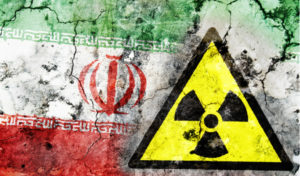
By MyImages – Micha @ Shutterstock.com
Originally posted January 4, 2016.
Americans are being misled on Iran’s prospects for developing a nuclear weapon.
I recently asked Dr. Christopher Preble, the Cato Institute’s director for defense and foreign policy studies, for a New Year’s assessment of Iran’s nuclear capabilities.
Chris advises Americans that:
Based on the evidence that has been reported, Iran doesn’t currently have a bomb, they don’t have sufficient material to construct one, and they don’t have the ability to deliver them by conventional means. It will be more difficult to surreptitiously acquire these capabilities under the eye of international inspectors. That inspection regime was not in place before the deal was concluded.
Is it impossible for Iran to develop a nuclear bomb? No. But it is highly, highly unlikely. And the Iranians have many reasons for not going down that route.
Asked about Iran’s position as a sponsor of terrorism, Chris answered:
They are, and have been, a key state sponsor of terrorism, although not of the groups that have attacked the United States, and have killed thousands of Americans since the late 1990s. Recall that Iran supported the overthrow of the Taliban in Afghanistan, in part because of their support for al Qaeda, and today is fighting the Islamic State in Iraq and helping the Assad government to fight ISIS in Syria.
The better argument is that state sponsorship isn’t that important. Look at ISIS, after all, which is an obvious non-state group, and effectively at war with at least four states (Iraq, Syria, Turkey and Iran)
Another argument is that Iran’s sponsorship of terrorism doesn’t prove the wisdom or folly of the nuclear deal. The details of the deal are what matter. And the deal required Iran to ship out quantities or enriched uranium, which they have done, and to shut down their plutonium processing and significantly limit their uranium enrichment going forward, which an intrusive inspection process will ensure that they do.
Dr. Preble summed up:
In short, the deal reduces the likelihood of Iran obtaining a nuclear weapon. Without a deal, Iran would be far closer to producing such a weapon, should they so choose.
Wrapping up, I asked Chris for some supporting documentation that might be helpful to all Americans in placing the Iranian nuclear issue in highly focused perspective. In The Iran Nuclear Deal: A Definitive Guide, readers get a thorough look at the deal from both sides.
My second link is headed The Iran Nuclear Agreement Is In America’s National Interest. Here a group of national security scholars, including all the living signatories of a New York Times ad in September 2002 warning, “War with Iraq is not in the American national interest. … We believe that the nation is now at a similar juncture and that the nuclear agreement with Iran makes war less likely and furthers American interests.”
Chris said of the letter:
I believe that analysts and scholars should be judged by their track record, not just in foreign policy, but on all public policy issues. Those who got the most important foreign policy issue of the last half century right should be taken more seriously than those who got it badly wrong. The leading opponents of the Iranian nuclear deal were all strong supporters of the Iraq war.
More from Chris Preble on the Iran deal here:
If you’re willing to fight for Main Street America, click here to sign up for my free weekly email.





